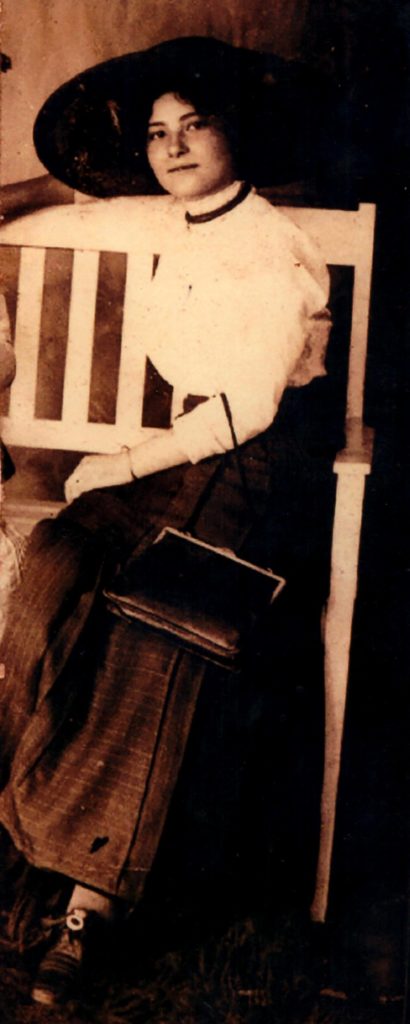
[This is an update to a story written 10 years ago]
Our names, especially our last names — or surnames — are very important to us.
They, their origins and their “evolvement” or change represent our heritage, our family history and sometimes contain surprises for us.
For example, our family name, de Wind, has not always been that. Back in the 18th century it was Levy.
But more on that later.
The search for one’s heritage, the drive to “build a family tree,” has become intense – and big business — in our country with dozens, perhaps hundreds, of “sites” ready to help you “find your genealogy,” “start your family tree,” “research your ancestry.” They are mushrooming everywhere, several using DNA tests.
Recently, we also used one of those websites with mixed results.
“Mixed” perhaps because we already knew quite a bit about our family history thanks to the efforts of a Dutch family member, Jan Roeland van Wisse de Wind, who spent the last few years of his life doing an inordinate amount of research, documenting the de Wind-Levy genealogy: a monumental labor of love and dedication resulting in a document more than 60 pages long.
Through this document and through the unique and powerful “Digital Monument to the Jewish Community in the Netherlands,” I came to the grim discovery that more than 100 de Wind family members (by birth or through marriage) were murdered at Nazi extermination camps, such as Auschwitz and Sobibór, during the Shoah. In Jan Roeland’s genealogy, I also learnt that the youngest, Hella Brechnel de Wind, was a mere 10-years-old, the oldest, Helena de Wind, was 67.
The reason the surname Levy (or Lévy, or Lévi or Levi) does not appear among the Holocaust victims in our family tree is that our surname changed from Levy to de Wind at the turn of the 18th century.
As I explain in “What’s in a Name? A Dutch Name, that Is,” I don’t exactly know why our family name was changed, but I don’t think that it was for religious or political reasons.
Perhaps coincidentally, it happened around the same time when Napoleon Bonaparte abolished the Kingdom of Holland and, a few months later, annexed it and placed it under direct French rule.
Before that time and according to Genealogist Rick van der Wielen, the Dutch traditionally used a “patronymic” system in which “the father’s first name became the first son’s last name, and the other kids got the left-over names from the grandfather, great grandfather and so on. Gradually in the 1600s, people began to turn the patronymic name into modern last names: Jan Hendricksen (Jan the son of Hendrick) gave his son the surname Hendricksen instead of Jansen. A suffix was often added to indicate ‘son of’ or ‘daughter of.’ For example, Jan, son of Hendrick would be written Jan Hendricks, Jan Hendrickse or Jan Hendricksen.”
Other family names were related to personal qualities, personal appearance, towns or regions of origin, occupation, etc.
Then came Napoleon.
In August 1811, Napoleon (who was a stickler for civil reforms, codes, laws, standards, etc.) decreed the mandatory registration of births, deaths and marriages, and compulsory military service.
Part of the decree also demanded:
Those of our subjects of the Departments of the former Holland… who until now have not had fixed surnames and given names, must adopt them during the year, and declare them before the officers of the civil registry… where they reside…
Those having known surnames… will be excepted. They who wish to conserve their names will nevertheless be required to declare them.
It is the same year when thousands, if not hundreds of thousands of Dutch people, changed their names or assumed “proper” family names.
And it is also around that time when so many funny, outlandish, ridiculous, sometimes even lewd and offensive Dutch names started to appear — many of the latter at the expense of Napoleon and the French occupiers.
Some reasons why:
• Consistent with the Dutch independent mind, pragmatism, stubbornness, and yes, sense of humor, thousands upon thousands of Dutch did not take Napoleon seriously.
• The Dutch people wanted to rebel in their own way, or to mock Napoleon and his system—play a practical joke on the French occupiers.
• They looked at this “name system” as a temporary law that would be repealed once Napoleon left Holland.
• Suikerbuik (Sugar belly)
• Spring in ‘t Veld (Jump in the Field)
• Uiekruier (Onion-crier)
• Naaktgeboren (Born naked)
• Poepjes (Little sh*t)
• Schooier (Beggar, bum, tramp)
• Scheefnek (Crooked-neck)
• Piest ([he] urinates)
• Zeldenthuis (Hardly ever at home)
• Rotmensen (Rotten people)
Some historians disagree on the reasons for, the extent and the nature of the name changes
For example, Leendert Brouwer claims that “funny names” such as Naaktgeboren and Poepjes (see above) were already in existence long before Napoleonic times.
One of these (funny) pre-Napoleonic surnames may be my stepfather’s family name: Kortekaas, which means “short cheese.”
I understand that this family name started out as Coppe, subsequently morphed into Cortecaes, and finally ended up as Kortekaas, long before Napoleon occupied the Netherlands and gave rise to all those even funnier Dutch names.
CODA: No doubt, several of our readers and contributors have similar interesting stories about their family names. Would love to hear about them in the comments section, or please send them to me through our editor for a future compilation.
















